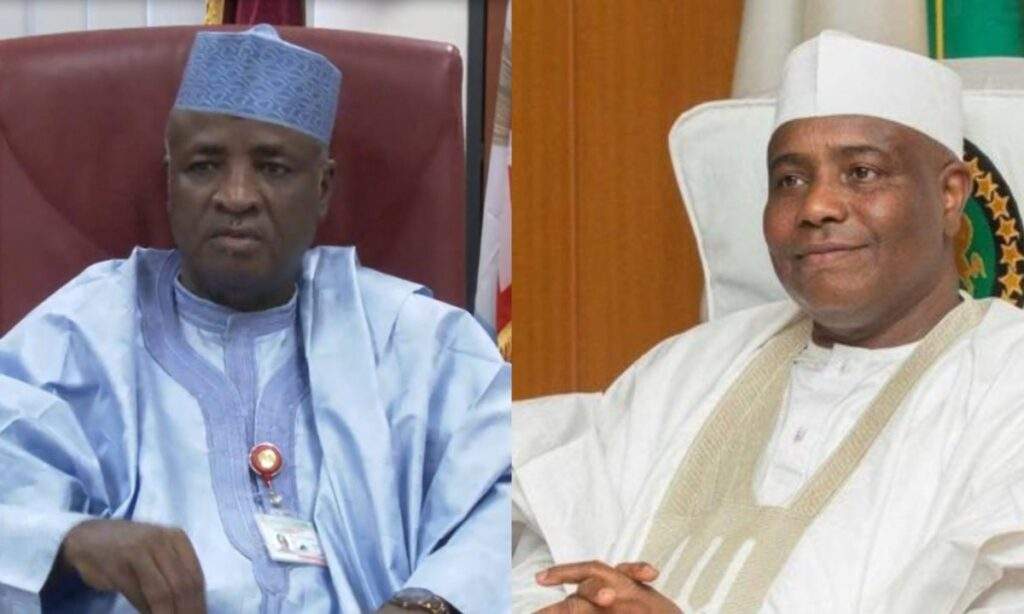The Court of Appeal, Abuja Division, delivered a significant verdict on Tuesday, upholding the election of two former governors of Sokoto State, Aminu Tambuwal and Aliyu Wamakko, as Senators representing Sokoto South and Sokoto North.
In two separate judgments, a panel of three judges led by Justice Mustapha Muhammad dismissed the petition against Tambuwal and awarded a fine of N500,000 in favor of the defendants and the Peoples Democratic Party (PDP). The election of Tambuwal, the immediate past governor of the state and the candidate of the PDP, was challenged by the immediate past senator representing the district, Ibrahim Danbaba. Similarly, Wamakko’s election was challenged by the immediate past deputy governor of the state, Manir Dan’iya.
Suleiman Usman, one of the lead counsels for the defendant and the PDP, announced, “The court affirmed Senator Tambuwal’s election and penalized the petitioner with a fine. Additionally, the court dismissed our petitions against the former governor and Senator representing Sokoto North, Aliyu Wamakko, and also awarded a yet-to-be-specified fine against our client in favor of the defendant in this case.”
This verdict carries significant weight in the political landscape of Sokoto State and sends ripples across the Nigerian political sphere. The court’s decision not only solidifies the positions of Tambuwal and Wamakko in the Senate but also sets a legal precedent for electoral disputes in the region.
The rulings exemplify the judiciary’s commitment to upholding democratic processes and ensuring that the will of the people, as expressed through free and fair elections, prevails. It also underscores the significance of legal recourse in addressing electoral grievances, thereby fostering confidence in the electoral system.
The implications of these rulings extend beyond the individuals involved, resonating with the broader community of Sokoto State and the Nigerian populace at large. The decisions serve as a testament to the resilience and integrity of the Nigerian legal system, emphasizing the pivotal role of the judiciary in safeguarding the democratic principles enshrined in the nation’s constitution.
As the dust settles on these landmark judgments, the political landscape of Sokoto State is bound to witness a recalibration, with Tambuwal and Wamakko poised to continue their legislative duties with renewed vigor and a sense of validation conferred by the judiciary.
The Court of Appeal’s affirmation of the election results not only brings closure to the legal challenges but also paves the way for the elected senators to focus on representing the interests of their constituents and contributing to legislative deliberations that shape the trajectory of the nation.
In a broader context, these rulings serve as a poignant reminder of the enduring resilience of Nigeria’s democratic institutions, infusing a renewed sense of confidence in the electoral process and upholding the democratic aspirations of the Nigerian people.
The reverberations of this legal saga serve as a testament to the dynamism of Nigeria’s political landscape, encapsulating the intricacies and significance of electoral processes in shaping the country’s democratic journey. The implications of these judgments will continue to resonate, touching the lives of citizens and shaping the contours of governance, not just in Sokoto State, but across the entirety of Nigeria’s diverse political tapestry.
